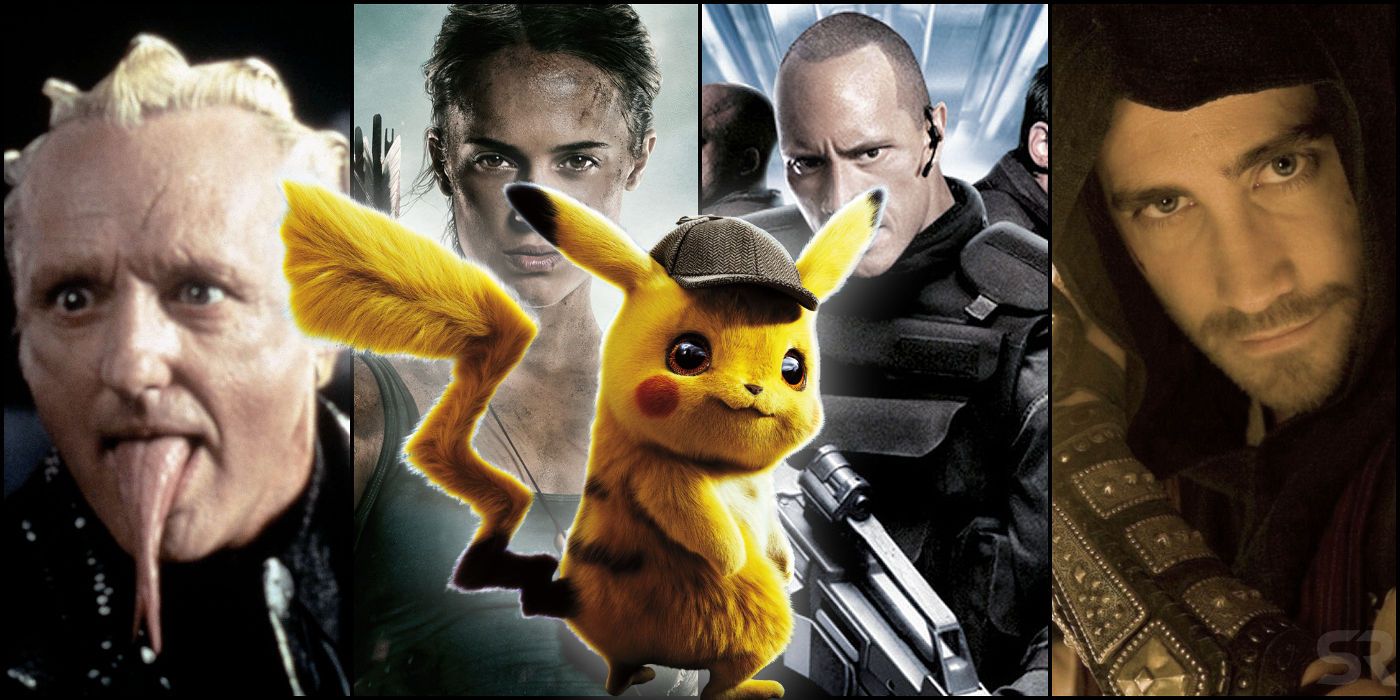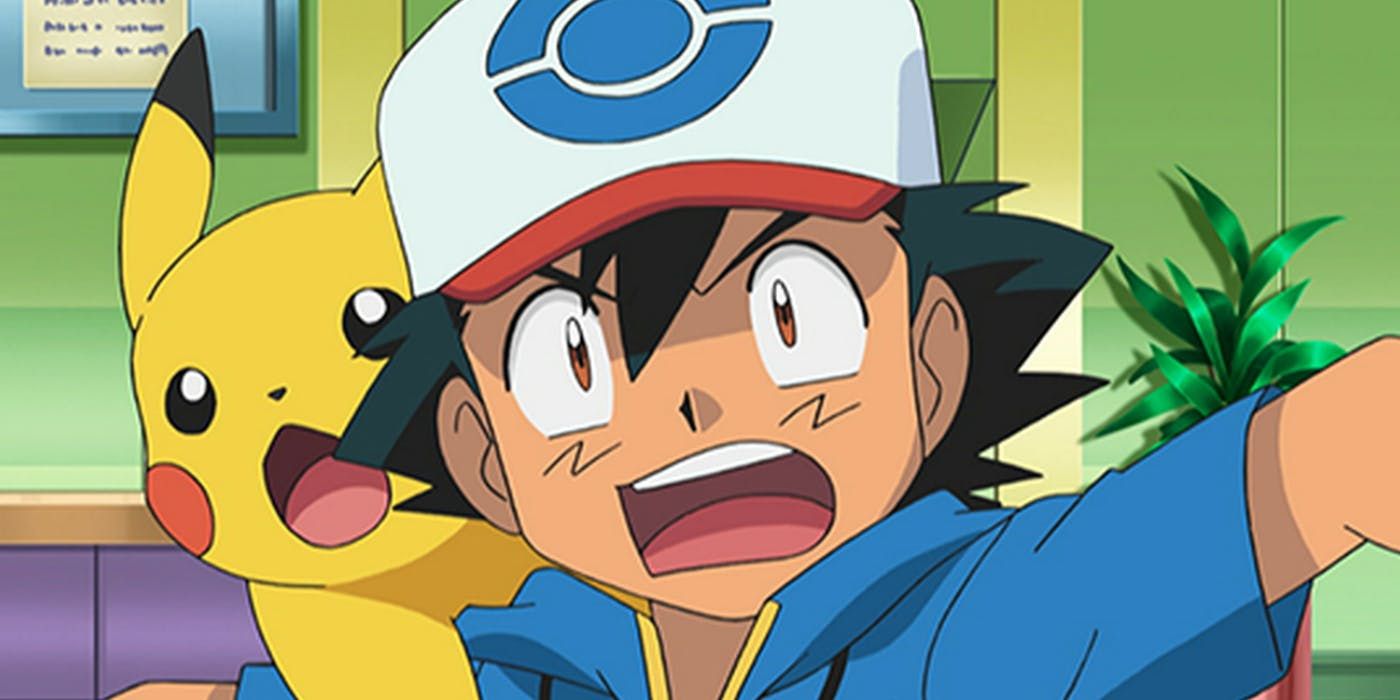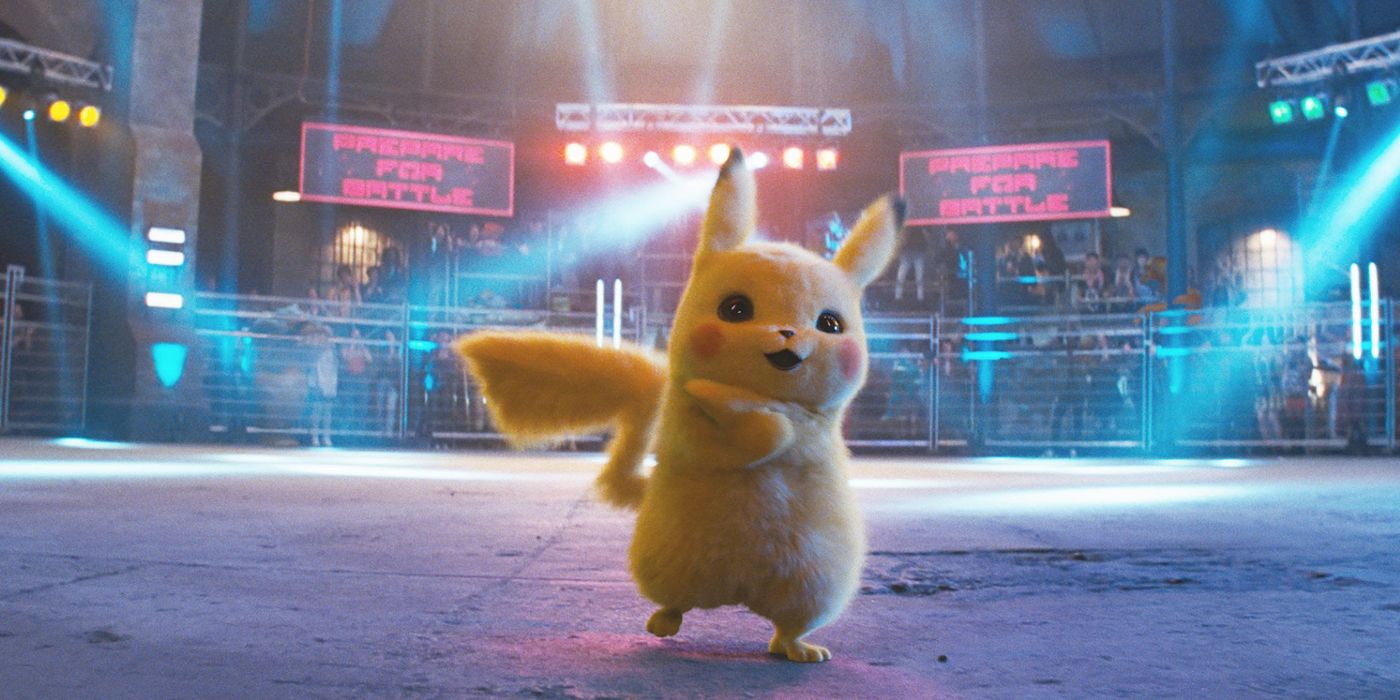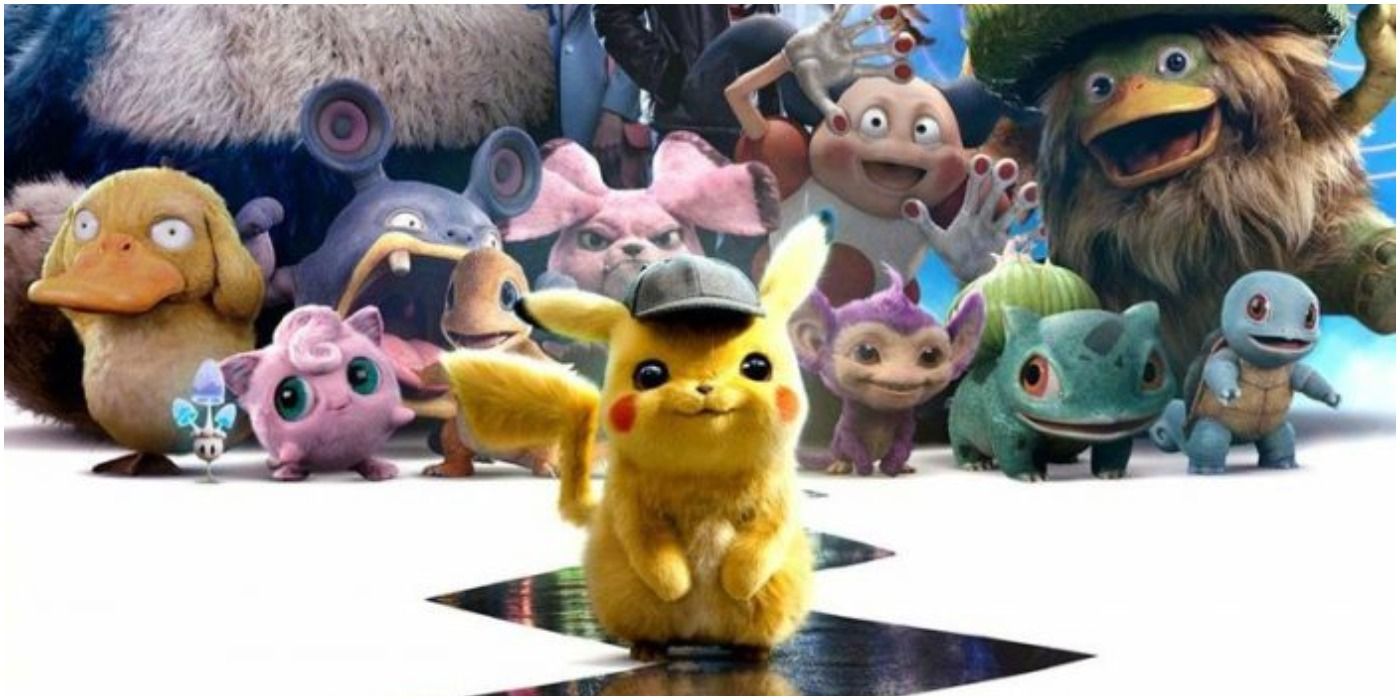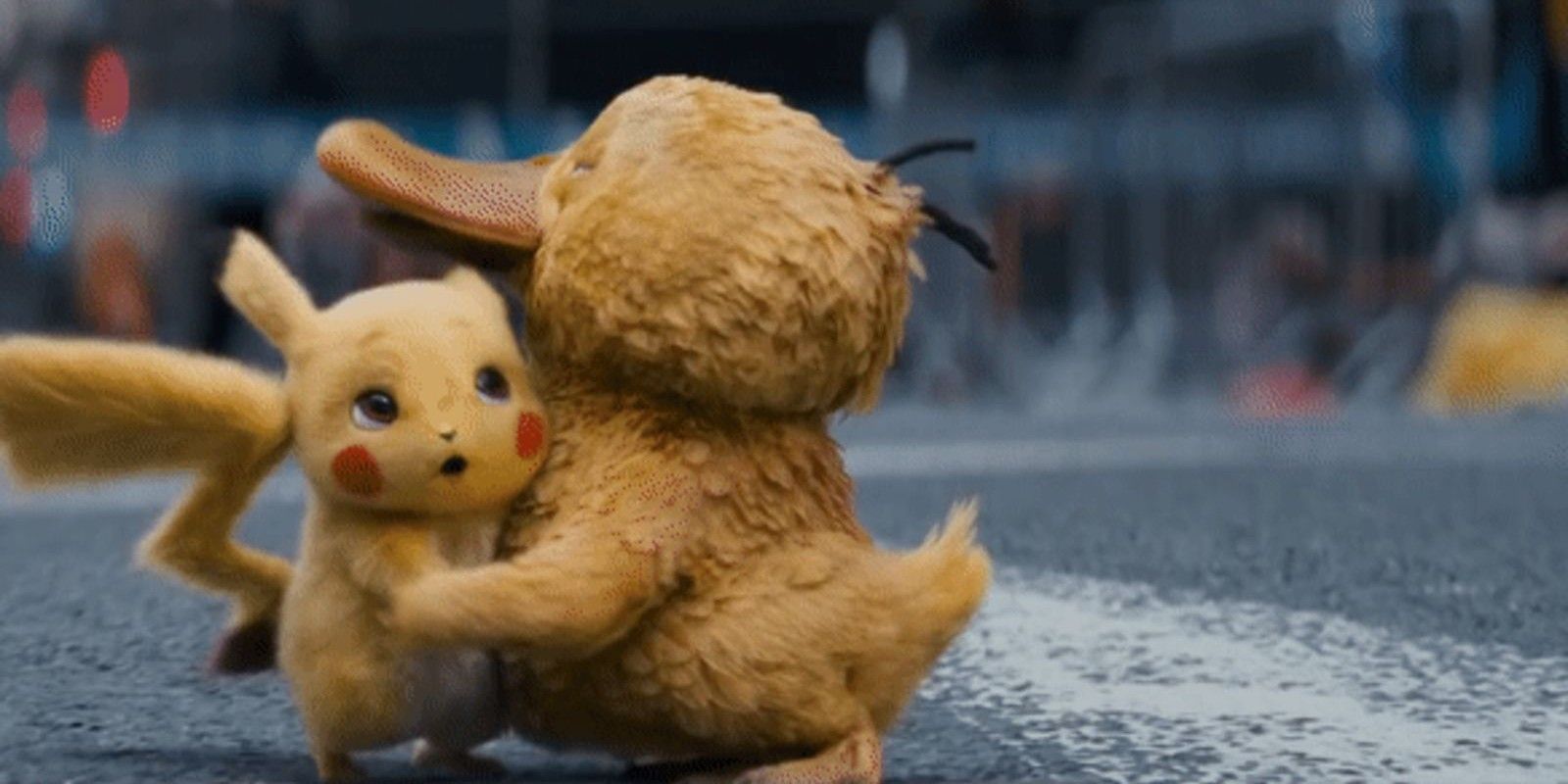The video game movie curse has finally been broken, and all it took was Ryan Reynolds voicing a bright, yellow, crime-solving creature in Detective Pikachu. Based on the Nintendo 3DS title of the same name, there was an initial air of skepticism surrounding Detective Pikachu, the first live-action movie from the Pokémon franchise, with many wondering why a relatively niche title would be adapted instead of the more recognizable "Ash Ketchum" story. However, when the first Detective Pikachu trailer was released online, that uncertainty turned into excitement, as the visual design of a real-life Pokémon world fully captured fans' imaginations.
That early footage may have been met with near-universal praise, but another threat to Detective Pikachu was lingering ominously in the background; not Team Rocket, but the infamous video game movie curse. The first feature film to be based on a video game franchise was 1993's Super Mario Bros. - a critical and commercial flop that had fans of the platforming plumber wincing with every scene. Sadly, Super Mario Bros. would set the tone for more or less every video game movie that followed over the next 26 years.
The likes of Alone In The Dark and Street Fighter proved to be unmitigated disasters, the Resident Evil movies made money but were derided by fans, and although efforts such as Tomb Raider and Prince of Persia fared better than their peers, they still proved largely uninspiring. It seemed an impossible task to lift material from a video game and make it work on the big screen and with every release, that theory sunk deeper and deeper into cinematic culture... until the arrival of a two-foot tall, caffeine-addict savior in Detective Pikachu.
Where Video Game Movies Have Gone Wrong
No lone factor is responsible for the collective failure of video game-inspired movies and, in truth, many of these movies suffer from a lack of quality across the board, but there are a few common pitfalls that have reared their ugly heads repeatedly over the years. Perhaps the most significant is deviating too far from the original source material. Often, video game movies will take some base inspiration from a video game franchise and fill in the gaps with original ideas, much to the disappointment of the game's existing fan base. Prime examples include Silent Hill and Max Payne, both of which were accused of missing the essence of their respective video games in favor of a more generic approach.
Unfortunately, the forthcoming Sonic The Hedgehog film proves that studios have yet to learn from this mistake. Sonic's unfaithful design and the movie's real-world setting are already both being widely mocked online, forcing costly last minute alterations. However, it isn't always possible to remain faithful when translating a video game to the big screen. Most games are intrinsically designed as an interactive experience to be played, rather than watched. This philosophy may have been lost on the Metal Gear Solid franchise, but most games rarely contain enough story for a direct, faithful feature-length adaptation and some level of artistic license is required when re-working a game's plot for the silver screen.
And even if that delicate balance between authenticity and originality can be attained, the process remains littered with banana skins and blue shells. Traditionally, movie producers have failed to view video game adaptations as anything other than mindless action flicks, and, therefore, any subtlety or nuance present in the games is stripped away. This approach is best exemplified by the Resident Evil series, which sacrificed the tension and plot of the games for a more formulaic and action-heavy approach.
Detective Pikachu Breaks The Video Game Movie Curse
Some video game movies have made money at the box office. Some have even managed to score a handful of positive reviews. But none have managed to attain commercial success while also courting the adulation of critics and delighting fans of the original games, and this is where Detective Pikachu bucks the trend. While the film's commercial exploits may be somewhat overshadowed by Avengers: Endgame's mission to conquer Pandora and sink the Titanic, early figures have been very healthy indeed, beating 2001's Tomb Raider's record for the best opening day for a video game movie.
Hitting financial targets alone is never the true hallmark of a great movie and, more significantly, Detective Pikachu is also enjoying a largely positive response from fans and critics. The praise for the film's visual style and creature designs has continued and, predictably, everyone loves Ryan Reynolds' cute wise-cracking Pikachu. Unlike many video game movies, Detective Pikachu has also been lauded for its strong emotional core and earnest character arcs, giving the film some level of emotional depth that was found lacking in Mortal Kombat: Annihilation.
Clearly, Detective Pikachu isn't going to be troubling the Oscars any time soon and elements of the storytelling have been accused of taking a cookie-cutter approach in places. For the most part however, Detective Pikachu has been received fondly and currently holds a 64% score on Rotten Tomatoes alongside an 85% audience score. The film might not have everyone feverishly hunting in the attic for their old GameBoy Color and Pokémon Yellow cartridge, but more or less everyone agrees that Detective Pikachu is way ahead of every other video game movie from years past.
What Detective Pikachu Did Right
Though Mr. Reynolds may beg to differ, Detective Pikachu's biggest selling point was offering the first big-budget, live-action representation of the Pokémon world and its assortment of strange but lovable critters. This was, after all, the overriding point of discussion online following the release of the film's trailer which generated the first real wave of Pika-buzz. Getting the "look" of a video game character right on the big screen is a tricky feat (see Sonic The Hedgehog) and requires a need to balance realism with an authenticity that'll keep fans happy. In this regard, Detective Pikachu found a perfect sweet spot. The Pokémon blend seamlessly into their surroundings but remain instantly recognizable from the games - not morphed into some bastardized real-life hybrids like the Super Mario Bros. movie's Goombas.
This gives Detective Pikachu license to explore how the Pokémon interact with their human surroundings and here's where the film's sense of fun really hits top gear. Whether it's the unattended Lickitung on a train, Tim's hapless attempt to catch a Cubone or Mewtwo's terrifying attack on Ryme City, Detective Pikachu is a stunning rendition of every Pokémon fan's dream scenario: what would life be like if Pokémon were real.
Where the visuals provide Detective Pikachu's familiarity, its story offers originality. The decision to base the first live action Pokémon film on something other than the Ketchum-style story may have ruffled some Pidgey feathers at first but, with hindsight, the move might have been a stroke of genius. No doubt fans still would have flocked to see a more traditional Pokémon movie, but they also would have entered theaters knowing roughly what to expect, dampening any sense of surprise or novelty. By taking its main cues from a lesser-known video game, Detective Pikachu offers a fresher slant on a well-trodden tale, weaving in more comedy and mystery elements than Pokémon would usually allow.
The best video game franchises evoke unique, distinct feelings within players, whether it's Tomb Raider's sense of archaeological exploration, the history-bothering free-running of Assassin's Creed or Resident Evil's constant feeling of utter terror. These elements are very difficult to convey precisely through film, and adaptations often replace them with cinema's own well-used genre tropes instead, thereby losing what made the games so appealing in the first place. Detective Pikachu wholeheartedly succeeds in capturing the spirit of the Pokémon franchise, and not just the messages of friendship, trust and teamwork, but also mankind's tendency to exploit Pokémon for their own gain and the unparalleled feeling of running headfirst into the unknown with a faithful partner perched on your shoulder.
Unlike many video game movies which market themselves towards a general cinema audience, Detective Pikachu also completely understands its demographic. Detective Pikachu's central human character, the not-so-subtly named Tim Goodman, is an early-twenties former Pokémon fan who's become disillusioned with the "gotta catch 'em all" lifestyle and found himself a career in the fascinating world of insurance. That brief biography will sound all too familiar to many who grew up with the original Pokémon titles and Tim's arc neatly mirrors the sense of nostalgia a large section of the audience will be experiencing.
-
The title of "best movie based on a video game" is hardly an achievement to boast about, but Detective Pikachu surpasses that claim and is being widely considered as the film to have finally broken the video game movie curse. Naturally, thoughts now turn to whether Detective Pikachu is a one-off happy accident or the start of a new wave of high-quality video game movies. Sonic The Hedgehog might suggest the latter, but a Metal Gear Solid movie is currently in the works, and with Hideo Kojima's stealth series perhaps the most cinematic video game franchise of all time, the true worth of the modern video game movie will soon be tested.

